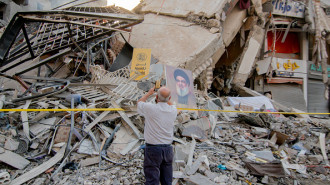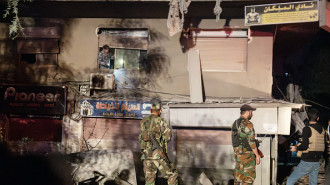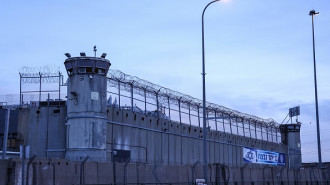Fresh Israeli massacre in Lebanon as officials scramble for ceasefire
An Israeli strike at around 3am on Friday killed a family of nine, including four children, in the Shebaa area of southern Lebanon, local media reported.
The family was among at least 25 people killed so far on Friday, as Israeli strikes hit several villages and towns in Lebanon's south including in Nabatiyeh, Tyre, Marjeyoun and Jezzine.
Around noon, air raids targeted towns in the Zahleh district in the northeastern Bekaa.
The attacks came as the UN's humanitarian coordinator in Lebanon said the situation was "catastrophic" as Israel intensified its assault on the country with hospitals overwhelmed with casualties.
Since Monday, over 700 people have been killed and over 6,000 injured in separate attacks across the country, although mostly focused on southern Lebanon, the northeastern Bekaa Valley, and the southern suburbs of Beirut.
"The recent escalations in Lebanon are nothing short of catastrophic," UN's Imran Riza told reporters in Geneva via video link from Beirut.
"We are witnessing the deadliest period in Lebanon in a generation, and many express their fear that this is just the beginning," he said.
Meanwhile, a spokeswoman for the World Health Organisation (WHO) warned that hospitals in Lebanon were "overwhelmed".
Margaret Harris pointed out that last week's pager and walkie-talkie blasts caused a large number of serious injuries, especially to eyes and hands, which require specialised treatment.
A full 777 injured remain in hospitals after those blasts "and 152 of those are critical cases", Harris said.
"That means they're not leaving the hospital for quite some time, and so every day of bombing and blasts fills up beds that can't be unfilled."
At the same time, she said, 37 health facilities were closed across Lebanon due to events.
Harris stressed that aid agencies had done a lot to prepare for possible mass-casualty events in Lebanon in case the past year of cross-border fire were to escalate.
"It was way beyond anything that normal planning, even for a horrific event like this, would have expected".
It came as Lebanese officials are ramping up efforts with Western diplomats - namely US and French - on the sidelines of the General Assembly in New York towards a ceasefire agreement.
Lebanese officials ramp up support at UN
Speaking at the UN General Assembly on Thursday, Lebanese Foreign Minister Abdallah Bou Habib said that Lebanon was "experiencing a crisis that threatens its existence".
He called for immediate implementation of the recent ceasefire proposal and warned against a "major explosion" in the region. He emphasised Lebanon's "commitment to the necessity of implementing Resolution 1701, as it is not only necessary for Lebanon's security, but also for Israel's security".
Outgoing Prime Minister Najib Mikati was also in New York, and held a large number of meetings to "secure support for Lebanon", state news agency NNA reported.
He told UN delegates that any ceasefire depended on "Israel's commitment to implement international resolutions" and that Lebanon faced "brutal practices of the Israeli enemy against the state and Lebanese people by violating its sovereignty… killing its civilians… and destroying homes", according to local media reports.
Late on Wednesday, following an intense round of diplomacy at the UN, France and the United States, joined by several Arab and European nations, issued a joint statement calling for a 21-day temporary ceasefire between Israel and Hezbollah to "give diplomatic efforts a chance".
The initiative was swiftly rejected by the Israelis.
"Benjamin Netanyahu is lying to everyone," Speaker Nabih Berri told French-language daily L’Orient-Le Jour, highlighting that the joint statement issued by the UN Security Council had been coordinated with both Lebanon and Israel.
"Netanyahu had initially agreed, but then went back on his decision," Berri said. According to him, the Israeli premier is using the same tactics he used during the ceasefire negotiations in Gaza.
"He’s stalling, but he won’t be able to continue like this for long," Berri said. "In the end, this statement is the only solution. It lays the groundwork for a serious agreement."






 Follow the Middle East's top stories in English at The New Arab on Google News
Follow the Middle East's top stories in English at The New Arab on Google News


